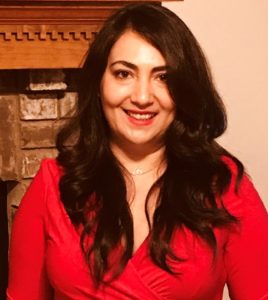
Aytakin Huseynli grew up in Azerbaijan, at the time a Soviet Republic next to the Caspian Sea. She was a child as the Soviet Union collapsed and protesters demanded Azerbaijan’s independence.
In response, the Soviets blew up TV news stations and sent in tanks and troops to kill men, women and children in the streets of Azerbaijan’s capital, Baku, where Ayatakin and her family lived.
“People were hiding in basements,” she says. Her parents were among the protesters and narrowly escaped the massacre; they had gone home to check on their children. It was Jan. 20, 1990.
By 1991, Azerbaijan was at war with neighboring Armenia over the territory of Nagorno-Karabakh. The war resulted in thousands of displaced people and refugees in Azerbaijan, an area slightly smaller than Maine.
Growing up in war and chaos, Aytakin, who goes by her first name, knew she wanted to help others, but she didn’t know the path to take. The profession of “social work” didn’t exist in Azerbaijan. Later, Aytakin would go to great lengths to change that.
Read the full story about this Brown School doctoral student on the Center for Social Development website.